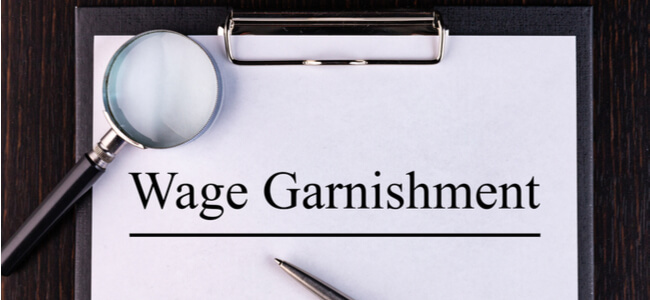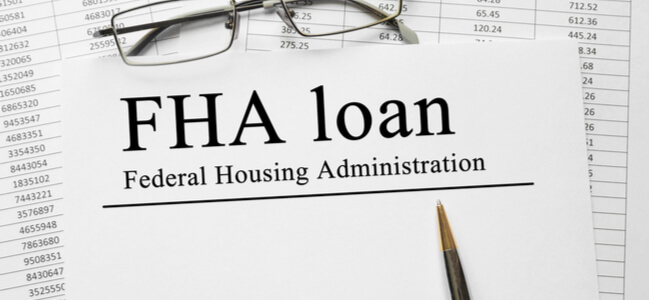Is It Possible To Stop Wage Garnishment?

Failure to pay financial obligations on time has a range of ramifications, one of which can include wage garnishment. This is a very drastic collection measure with severe consequences for your income and credit score. Continue reading to learn how to stop wage garnishment and prevent your bank account from being drained.
What Is Wage Garnishment And Who Can Use It?
The US Department of Labor defines wage garnishment as “a legal procedure in which a person’s earnings are required by court order to be withheld by an employer for the payment of a debt such as child support.”
Your employer must send the withheld portion of your paycheck directly to the creditor until the debt is paid, or you take steps to stop wage garnishment. Federal and state statutes protect you from an unrestrained process.
There are two types of garnishment: a wage garnishment and bank garnishment. For the latter, the court orders your bank to freeze the funds in your account.
According to statistics, this is a very common way to collect unpaid debt. There are several reasons why you might face this action including:
- Credit card debt
- Unpaid taxes
- Student loan default
- Auto and personal loan debt
- Failure to pay spousal or child support
Can You Negotiate A Wage Garnishment?
If you receive the order from a creditor, the first thing that’ll most likely cross your mind is, “how can I stop garnishment of my paycheck?”
If you’re wondering whether you can negotiate, the simple answer is yes, you can. First, contact your creditors and explain your situation. Before you call, review your budget so you know how much you can offer to pay. See if you can work out a settlement or payment plan.
Another option is to challenge the court order. If you believe that an order will cause you severe financial harm or that it was based on false information, you can contest the ruling. However, to avail of this option, you must act quickly.
You can also elect to accept the judgment. The order sets up a process to garnish income in installments from your paycheck, but you also have the option to pay the debt in full. Borrowing from family or taking out a personal loan are ways to get out from under the order.
How Much Of Your Wages Can Be Garnished?
The Consumer Protection Act has established guidelines on how much an employer can garnish from your paycheck. These parameters set limits on how much of your weekly disposable net income (after taxes and qualifying deductions) can be seized.
Deductions such as your 401(k), health insurance, or charity contributions aren’t required by law and therefore aren’t subtracted from your gross income. The limitations are based on the type of debt which is outlined below:
Child And Spousal Support
- No more than 50% if you are supporting other children or a spouse
- Up to 60% if you aren’t supporting other children or a spouse
Federal Student Loan Debt
- 15%
Credit Card Debt, Personal Loans, Medical Bills, Other Consumer Debt
- 25% or the amount by which your weekly income exceeds 30 times the federal minimum wage, whichever is less. In 2020, the federal minimum wage is $7.25
Federal Taxes
- Up to 15%, but the IRS will consider the number of dependents you have and the standard deductions to which you’re entitled
What Does Bank Garnishment Do To Your Credit Score?
Collection efforts that garnish a bank account impact your credit score, however, not in the usual manner. Creditors typically don’t report these activities to the credit bureaus. Instead, they’ll send notice that the account has been closed or defaulted, without mentioning that the debt is being collected via wage or bank account seizure.
This account default or closure will become a public record. Credit bureaus have access to public records and they’ll use this information to lower your credit score. Moreover, this information stays on your credit report for up to seven years. If potential creditors find this listed on your report, they might deny your application or offer you the least favorable lending terms.
If you’re wondering how long it takes to garnish a bank account, the answer often varies by individual state laws governing the process. From debt default until funds are frozen, the process will generally last several weeks or months depending on the jurisdiction. However, after receiving court notice, the seizure process can commence within a matter of days or weeks.
How To Stop A Garnishment
You have the right to dispute or stop wage garnishment if you don’t owe the debt or believe the notice contains inaccurate information. By law, you must be provided with written notice of the intent to garnish your wages, and you’re entitled to a hearing. The notice will give details on where to send your objection. It’s advisable to retain the services of an attorney to help you with your challenge.
The time to stop a garnishment is very limited. After court notice has been given, you may have only between five and 30 business days to contest the complaint before any financial seizure begins. Filing for Chapter 7 bankruptcy is another way to stop this process in its tracks.
The Bottom Line
When you owe money, your creditor has the right to collect that money through various avenues. Directly taking your wages doesn’t only deprive you of income but also becomes a matter of public record.
Finding out how to stop a wage garnishment is going to be your first priority. Fortunately, you do have rights under the law, providing you space to protect your income. Above all, the most important thing is to act quickly.



